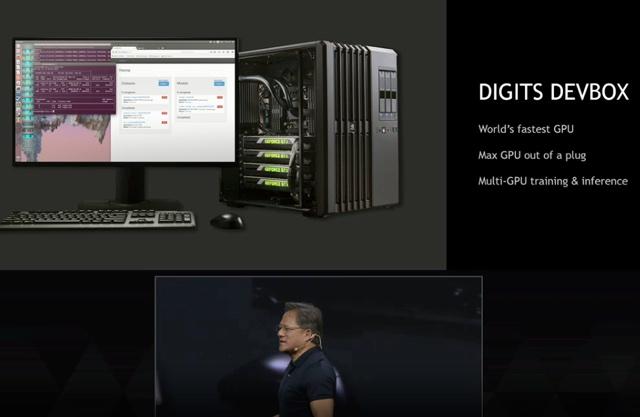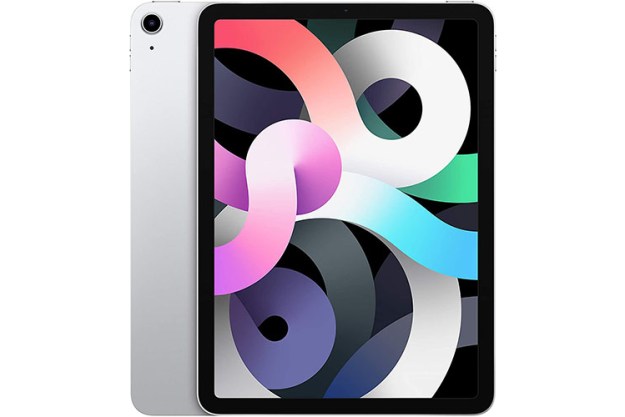
This is why Nvidia has consistently produced cards that target these users, including not just Quadro but also various Titan graphics cards with extreme frame buffers or double-precision math (and, in the case of the old Titan Z, both). Now the company has taken things a step further by introducing its own computer.
Related: The Titan X is revealed with 12GB of memory for $999
Called the Digits Devbox, the system offers four of the company’s new Titan X graphics cards in quad-SLI arrangement. This makes for the most powerful configuration of GPU hardware that can be packed into a single PC. Even two Titan Z cards can’t achieve the same performance, as quad-SLI is the maximum possible, and each GPU in the Titan Z is slower than that in the Titan X.
The other specifications are equally impressive, and include an ASUS X99 motherboard with Core i7, Haswell-E processor, up to 64GB of DDR4 memory, support for every form of mechanical and solid state storage available and a power supply that pumps out a maximum of 1500 watts.
Because it is designed for developers, the system will run Ubuntu 14.04 and will come with minimal documentation. It also runs software from Nvidia’s appropriately named Digits framework, which is designed to help researchers configure, monitor and process data from deep neural networks. Also included is the company’s CUDA toolkit.
While some gamers might see this as the ultimate Steambox, the Devbox is built for work rather than play. You’ll be able to pick up the Devbox in May for a whopping $15,000. That’s more than you’d pay for a Windows PC configured with the same hardware, so it’s clear that Nvidia is placing some value on its software as well as its hardware. Developers can sign up for access to the Devbox today, and an online configurator is planned for the near future.
Editors' Recommendations
- Nvidia’s supercomputer may bring on a new era of ChatGPT
- GTC 2020 roundup: Nvidia’s virtual world for robots, A.I. video calls



